Love the fear: 5 lessons learned from training with Wim Hof
Posted by boekcoach in Inspiratie, Leestips | 0 comments

 It was a privilege to be able to spend a week training with Wim Hof, aka the Iceman. A week which literally blew my mind and let me love the fear. A week in which I met incredible people and learned a lot. Not just from Wim Hof himself, but also from the people who I met on this special journey. So I would love to share these “lessons” with you. All of them applicable on writing or publishing a book as well!
Something you should know before you start to reading is that just two weeks ago I was that girl who did not dare to jump into cold water and even in the warmest water would take an hour to get into the swimming pool or sea. Last week I sat in an ice bath, thrice! The longest was 15 minutes and the crazy thing was; it was easy and I could have stayed longer. My conviction is: you can do that too!
It was a privilege to be able to spend a week training with Wim Hof, aka the Iceman. A week which literally blew my mind and let me love the fear. A week in which I met incredible people and learned a lot. Not just from Wim Hof himself, but also from the people who I met on this special journey. So I would love to share these “lessons” with you. All of them applicable on writing or publishing a book as well!
Something you should know before you start to reading is that just two weeks ago I was that girl who did not dare to jump into cold water and even in the warmest water would take an hour to get into the swimming pool or sea. Last week I sat in an ice bath, thrice! The longest was 15 minutes and the crazy thing was; it was easy and I could have stayed longer. My conviction is: you can do that too!
By being ego-less you become fear-less
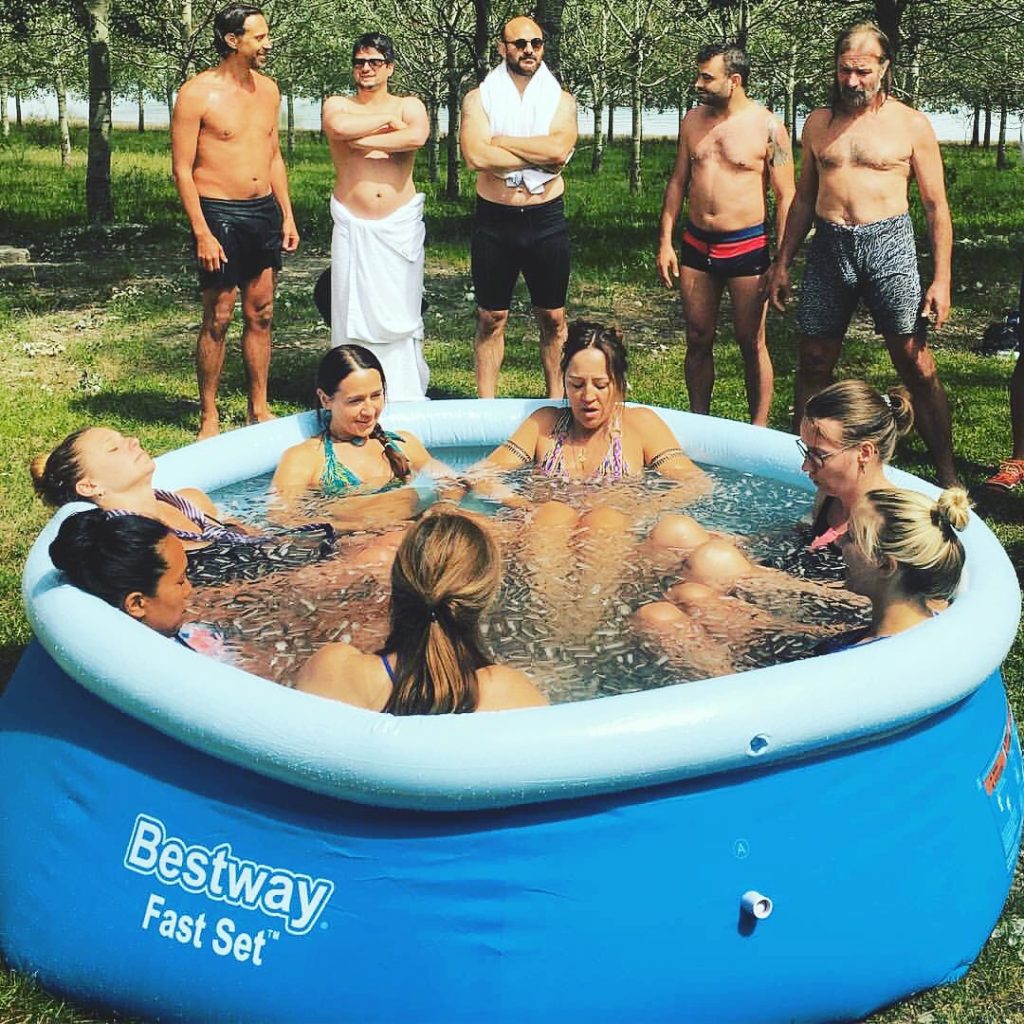 You're probably aware of the feeling when you are in a situation where you need to do something that is important to you or difficult or scary and you awaken this extra power inside of you. You put on this shield so you can perform or it protects you from what might come. You might even start to work harder instead of smarter.
My initial reaction to the ice bath and some of the other activities we did was to tense my muscles and then go for it. Except with the third and also last ice bath I just couldn’t do that because of the breathing exercises I just did. I felt completely vulnerable. No ego was left, it was just me. I could not work harder or do more. Then a miracle happened. All I did was step into the ice bath and sit down. Nothing more, nothing less. It was the easiest ice bath. I just let go and relaxed. No panic, no tension, I was just being in the moment. And I rocked it. When I started getting cold I took control of my mind and directed the warmth where it was needed and let go again.
From that moment on, I applied the same principle to all the activities and exercises we did. No tensing up, no putting on an energy shield when it got difficult, scary, needed a lot of strength or got tough. I relaxed and let go. This way I jumped of cliffs, swam in icy water, faced my inner fears and climbed a mountain. By becoming completely vulnerable and letting go of your ego you become fear-less and can climb the highest mountain and face the toughest challenge all with a smile :)
You're probably aware of the feeling when you are in a situation where you need to do something that is important to you or difficult or scary and you awaken this extra power inside of you. You put on this shield so you can perform or it protects you from what might come. You might even start to work harder instead of smarter.
My initial reaction to the ice bath and some of the other activities we did was to tense my muscles and then go for it. Except with the third and also last ice bath I just couldn’t do that because of the breathing exercises I just did. I felt completely vulnerable. No ego was left, it was just me. I could not work harder or do more. Then a miracle happened. All I did was step into the ice bath and sit down. Nothing more, nothing less. It was the easiest ice bath. I just let go and relaxed. No panic, no tension, I was just being in the moment. And I rocked it. When I started getting cold I took control of my mind and directed the warmth where it was needed and let go again.
From that moment on, I applied the same principle to all the activities and exercises we did. No tensing up, no putting on an energy shield when it got difficult, scary, needed a lot of strength or got tough. I relaxed and let go. This way I jumped of cliffs, swam in icy water, faced my inner fears and climbed a mountain. By becoming completely vulnerable and letting go of your ego you become fear-less and can climb the highest mountain and face the toughest challenge all with a smile :)
Start before you are ready; Just go for it
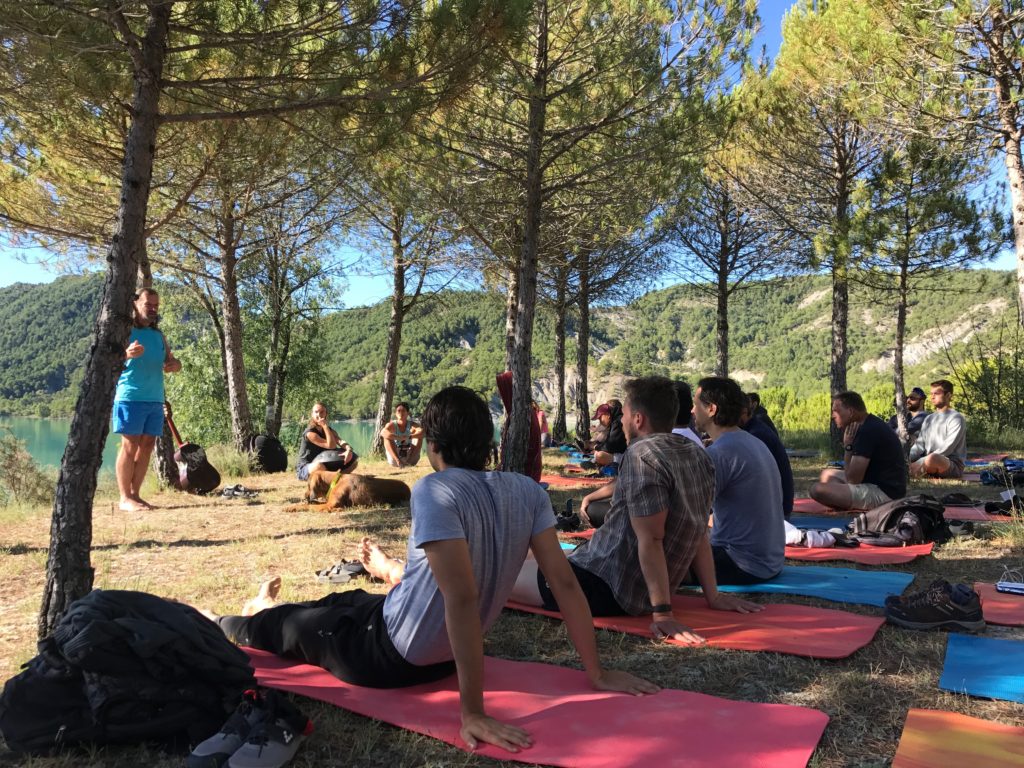 When you want to achieve something. Most of us prepare a plan. Want to know for sure that what they are doing is the right thing and they are ready for it. Well, news flash: life is full of insecurities when you face your fears and achieving your life goal or writing your book are definitely two of them. You are never ready. You just have to create momentum and jump. The moment you create momentum there is no way of going back. Except the voice in your head: “Sh*t, did I just do that?” and before you realise it, you jumped of a high cliff in icy water and all you can do is be in the moment and go for it. So let go of your program and just go for it. No more excuses, just follow your intuition.
And no, there are no special preparations or techniques you need to learn before you get into an ice bath or jump off a cliff or write a book. You just need to do it, create momentum and let go.
When you want to achieve something. Most of us prepare a plan. Want to know for sure that what they are doing is the right thing and they are ready for it. Well, news flash: life is full of insecurities when you face your fears and achieving your life goal or writing your book are definitely two of them. You are never ready. You just have to create momentum and jump. The moment you create momentum there is no way of going back. Except the voice in your head: “Sh*t, did I just do that?” and before you realise it, you jumped of a high cliff in icy water and all you can do is be in the moment and go for it. So let go of your program and just go for it. No more excuses, just follow your intuition.
And no, there are no special preparations or techniques you need to learn before you get into an ice bath or jump off a cliff or write a book. You just need to do it, create momentum and let go.
Love the fear (and do not f*ck yourself in the process)
 The motto during the whole week was “f*ck the fear” although it was basically about love the fear. Dance with your fears, embrace them, go deep. You do not always need to know where a fear is coming from or what a feeling or fear means. Just embrace it and do not let it hold you back.
During the breathing exercises a lot inner demons came to visit all of us. Just by breathing fully in and letting go they were there the one moment and gone the next. Everybody has fears and it is not about beating them or dismissing them (you'll f*ck yourself in the process by doing stupid things). It is about dancing with them, embracing them and not letting them hold you back. And you can do more than you think you are capable of. And yes you can realise your dreams!
The motto during the whole week was “f*ck the fear” although it was basically about love the fear. Dance with your fears, embrace them, go deep. You do not always need to know where a fear is coming from or what a feeling or fear means. Just embrace it and do not let it hold you back.
During the breathing exercises a lot inner demons came to visit all of us. Just by breathing fully in and letting go they were there the one moment and gone the next. Everybody has fears and it is not about beating them or dismissing them (you'll f*ck yourself in the process by doing stupid things). It is about dancing with them, embracing them and not letting them hold you back. And you can do more than you think you are capable of. And yes you can realise your dreams!
Your knee fits into your armpit
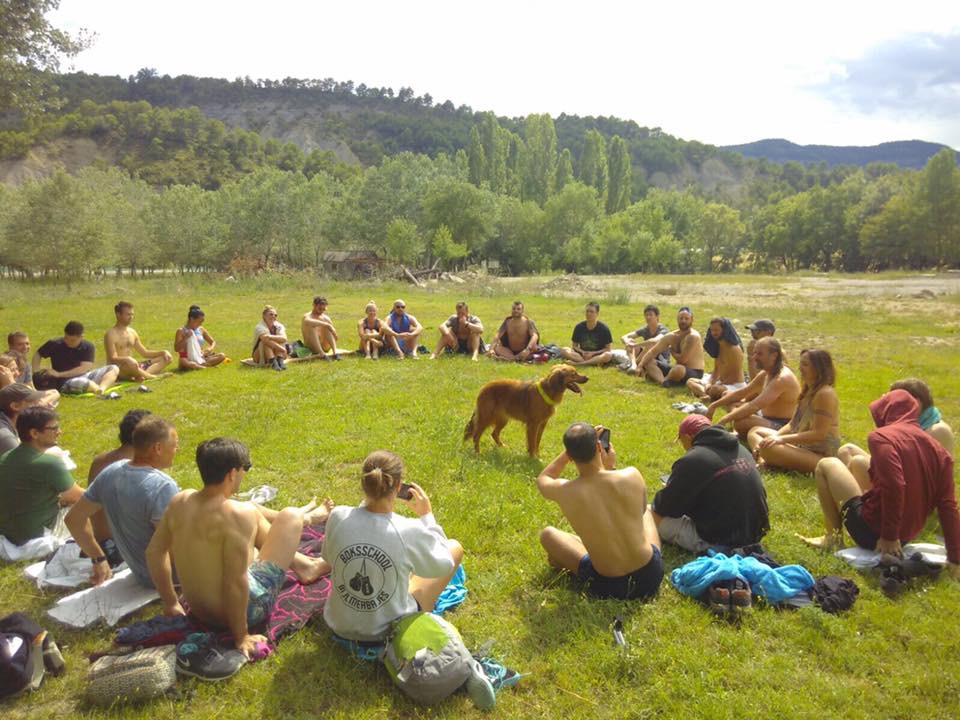 Yes, it’s true. Your knee fits into your armpit, your hands underneath your feet. Basically you are whole and fit into your own body and soul. By using your own body you create the boundaries you need to support yourself. Your body knows and has it's own way of working things out. As is the same for life or any plans you make.
Yes, it’s true. Your knee fits into your armpit, your hands underneath your feet. Basically you are whole and fit into your own body and soul. By using your own body you create the boundaries you need to support yourself. Your body knows and has it's own way of working things out. As is the same for life or any plans you make.
ALL OF US HAVE AN AMAZING STORY TO TELL OR SONG TO SING
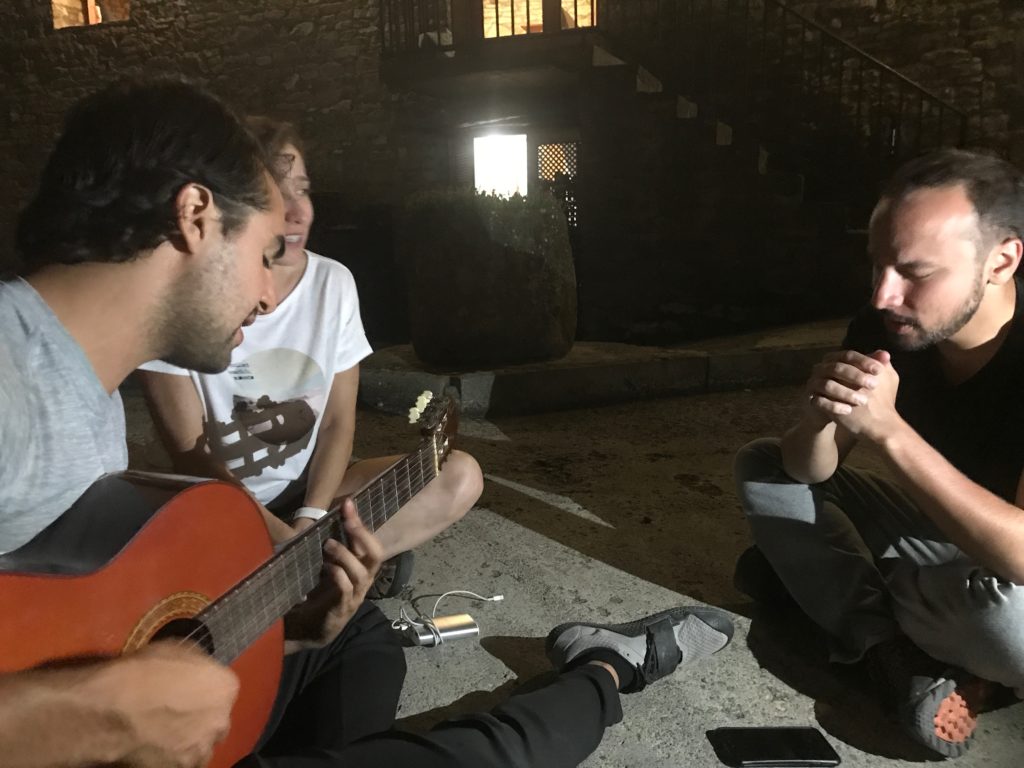 All of us, and there are no exceptions, have an amazing story to tell or songs to sing. And there are so many amazing stories to learn about. Sometimes they are simple and small, sometimes huge and very emotional. By sharing these stories we create a safe environment and common ground to grow. During this week I met the most amazing, crazy people and just by talking to them and sharing stories you create new experiences and new worlds start to open up. And all of us have stories to tell some of them even worthy of a book :). We are all books filled with blank pages which are waiting for stories and songs to sing.
All of us, and there are no exceptions, have an amazing story to tell or songs to sing. And there are so many amazing stories to learn about. Sometimes they are simple and small, sometimes huge and very emotional. By sharing these stories we create a safe environment and common ground to grow. During this week I met the most amazing, crazy people and just by talking to them and sharing stories you create new experiences and new worlds start to open up. And all of us have stories to tell some of them even worthy of a book :). We are all books filled with blank pages which are waiting for stories and songs to sing.
Wim Hof
If you are interested in Wim Hof or his techniques or want to experiment with his method, I recommend going to the website and doing the free 3 week online course or download the app WHM on your phone. The cool thing is that almost everything he does is backed up by science. New studies are coming out soon. In the end it’s all about being happy, strong and healthy. Easy does it. Just breathe and love the cold. Hippies anew. PS please do not f#ck yourself by doing both the breathing and cold on your own, in the water or by driving! Following the instructions in the WHM app or from the video's on the WHM website!
PS please do not f#ck yourself by doing both the breathing and cold on your own, in the water or by driving! Following the instructions in the WHM app or from the video's on the WHM website!Great books to read
Posted by boekcoach in Inspiratie, Leestips | 0 comments
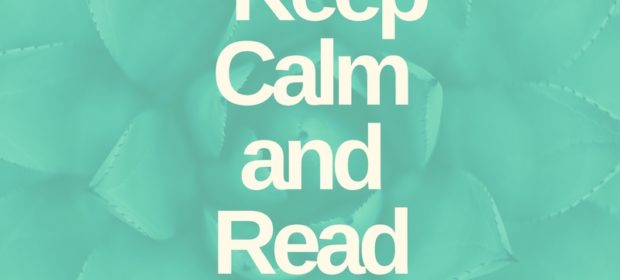
I recently received some requests from non-Dutch readers asking which books are great to read. Hence the blog in English… For me, as in everything I do, I always would like to know what a person likes. Is he or she a romantic, is it for work or general interest, do they like beautiful sentences or prefer the equivalent of fast-food? Personally I have no judgement about what you read as long as you read. When I worked in a bookshop, my most beloved challenge was to find a book for people who did not like reading or did not read much and find that particular book that would make them realise reading could be fun, entertaining or just very useful. I'm a very strange reader. I binge read and I read everything from pulp to scientific works to poetry. I do have my favorites. Below is a short list which could be called my “one-size-fits-all" list. It is international and has something for everyone. In no-particular order: Haruki Murakami is my favorite author at the moment. When I read his books and short stories it gives my brain a massage. Norwegian Wood is a good place to start. Timothy (Tim) Ferris' Tools of Titans. Not a book to read as a story. It contains a ton of inspiration, useful tools, tips and tricks and is just fascinating. I love poetry. The poetry of Carlos Drummond de Andrade is one of my favorites. It can be romantic and raw. Think and Grow Rich by Napoleon Hill, a classic from 1937! Basically, the inspirational source of most business self-help books out there. And still valid to this day. The Circle by Dave Eggers. You have to read the book and only then are you allowed to watch the movie. Very good writing on how our world is developing into an age of no-privacy and a real life big brother. In a way it's our modern 1984 by George Orwell. And to give the above list some female balance: An oldie and a book which made an ever-lasting impression and has several story lines: The Temple of My Familiar from by Alice Walker.
Geld verdienen met je boek: deel 2
Posted by boekcoach in Boekenbusiness, Boekinfo, Leestips | 0 comments
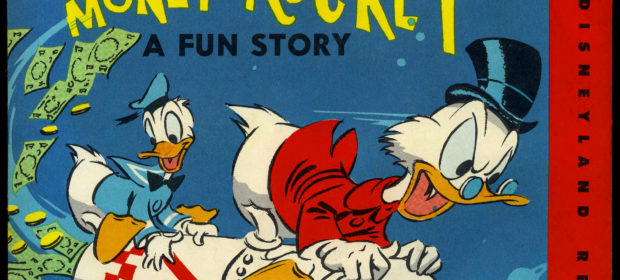
In deel 1 in de serie ‘Geld verdienen met je boek’ schreef ik al: De belangrijkste vragen die je met je boekenplan wilt beantwoorden zijn het Waarom van jouw boek, het Wanneer en het Hoe. Oftewel: Waarom moet jouw boek er komen, Wanneer is het een succes en Hoe ga je dat aanpakken. Als je goed nadenkt over deze vragen en kiest voor een slimme opzet, kun je met elk boek geld verdienen. In dit blog gaan we het hebben over Het Waarom.
Een boekidee begint óók met de ‘why’
Je wilt dus een succesvol boek uitbrengen waar je financieel ook nog wat aan overhoudt. Dan moet je in mijn optiek heel goed weten waarom jouw boek het levenslicht moet zien. Waarom moet jouw boek uitgegeven worden? Waarom is jouw boek zo geniaal? En vooral: waarom wil jij dat je boek uitgegeven wordt, wat is jouw motivatie? De ‘why’ is essentieel, en dit voor jezelf helder krijgen is dan ook de eerste stap in elk boekenplan dat ik maak, of waarover ik adviseer.Waarom nou die ‘why’?
Het ‘waarom’ in je boekenplan is zo belangrijk omdat dit steeds het ijkpunt is waar je naar terugkeert op het moment dat je een beslissing moet nemen. Want news flash: wil je een boek maken, dan moet je een miljoen beslissingen nemen. Dan is het handig om terug te grijpen op je ‘why’, zodat je snel boven tafel krijgt of een bepaalde beslissing in lijn is met jouw ‘why’. Deze aanpak heeft twee grote voordelen:- De kans dat je je uiteindelijke doel bereikt is in één klap vele malen groter;
- En je bespaart jezelf een hoop tijd omdat je je niet laat afleiden door allerlei (on)mogelijkheden
De ‘why’ helpt je verder in het proces
Jouw inmiddels zorgvuldig uitgedachte ‘why’ helpt je ook bij het bepalen wanneer je je boek uiteindelijk succesvol vindt. En heb je eigenlijk wel een boek nodig om jouw ideeën aan de man te brengen? Of zijn er ook andere opties voor jouw wensen en mogelijkheden? Om je een voorbeeld te geven: voor een klant heb ik ooit een poster genaakt in plaats van een boek. Waarom? Omdat hij hiermee ook zijn doelstellingen kon behalen, en deze aanpak paste veel beter binnen zijn budget en mogelijkheden. Hoe het afliep? De poster werd uiteindelijk een groot succes. Waarschijnlijk groter dan wanneer het een boek was geweest, waarbij allerlei compromissen gedaan hadden moeten worden vanwege het beschikbare budget.Hoe bedenk je je ’why’?
Tja, hoe vogel je nou uit wat je écht wilt met je boek? Je hebt een goed idee, en dat wil je naar buiten brengen, en that’s it, toch? Vanuit mijn rol als BoekCoach kom ik allerlei verschillende soorten motivaties tegen, en vaak zijn het variaties op een van deze thema’s:- Ik wil mijn gedachtegoed en creativiteit verspreiden
- Een boek vind ik een goed visitekaartje, en geeft mij zichtbaarheid binnen mijn bedrijf of branche
- Ik zie een boek als een bekroning op mijn ego..eh werk
- Ik wil hier gewoon graag geld mee verdienen
Wat is míjn motivatie?
Als jij moeite hebt om achter je eigen motivatie te komen kun je jezelf de volgende vragen stellen:- ‘Stel, mijn boek wordt een succes en bereikt een miljoenenpubliek. Alleen verdien ik er helemaal niets aan. Sterker nog, mijn naam staat niet eens op de omslag. Ben ik dan nog steeds blij?’
- ‘Stel, een prestigieuze uitgeverij wil mijn boek uitgeven maar ik moet een aantal compromissen sluiten in de tekst, en ook wordt voor mij beslist hoe en wanneer het boek op de markt komt. Is dat iets wat ik oké vind?’
- ‘Stel, ik geef mijn boek zelf uit, ik verkoop 500 exemplaren en ik verdien uiteindelijk 5.000 euro aan je boek. Óf een traditionele uitgever geeft mijn boek uit, verkoopt er 2.000 en uiteindelijk verdien ik er 1.500 euro aan. Wat heeft mijn voorkeur?’
BoekCoachtip
Stel jezelf ‘wat als’-vragen om je diepe motivatie om je boek te schrijven of uit te brengen helder voor ogen te krijgen.Leestips
Start With Why van Simon Sinek Think & Grow Rich van Napoleon Hill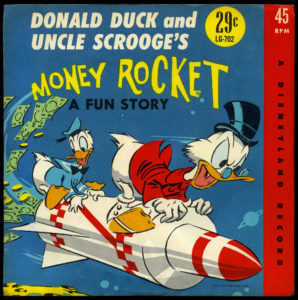
En wat zou jouw motivatie zijn om je boek te schrijven of uit te geven? Laat het me weten in de comments.
Making of Rijks, Masters of the Golden Age
Posted by boekcoach in Inspiratie, Leestips | 0 comments
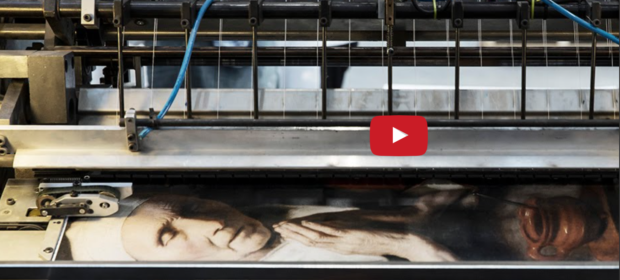
Boeken heb je in allerlei vormen en maten. Dit boek is toch wel het bijzonderste boek, waar ik aan heb meegewerkt. Wanneer maak je nog een boek dat letterlijk 35 kilo weegt? Dit filmpje geeft een mooi inkijkje in het productieproces bij de drukker en binder.
Meer weten over dit boek? Kijk dan op www.rijksmastersofthegoldenage.com.
Schrijven begint met lezen
Posted by boekcoach in Inspiratie, Leestips, Schrijftips | 0 comments
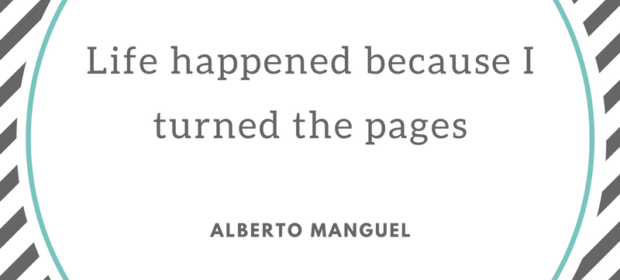
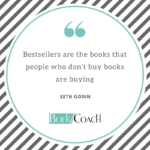 Deze week ben ik de Reading Challenge 2017 begonnen. Waarom? Omdat voor mij schrijven met lezen begint. Hoe kun je een boek schrijven, wat interessant is en wat mensen graag willen lezen, als je vrijwel geen boeken leest? Waarom zouden mensen jouw boek willen lezen als je zelf de moeite niet neemt om iemand anders boek te lezen?
Lezen is de ultieme vorm van luisteren. En je steekt altijd iets op van een boek. Variërend van hoe het NIET moet tot hoe het WEL moet. Daarbij maakt het mij persoonlijk niet uit wát je leest, als je maar leest :)
Deze week ben ik de Reading Challenge 2017 begonnen. Waarom? Omdat voor mij schrijven met lezen begint. Hoe kun je een boek schrijven, wat interessant is en wat mensen graag willen lezen, als je vrijwel geen boeken leest? Waarom zouden mensen jouw boek willen lezen als je zelf de moeite niet neemt om iemand anders boek te lezen?
Lezen is de ultieme vorm van luisteren. En je steekt altijd iets op van een boek. Variërend van hoe het NIET moet tot hoe het WEL moet. Daarbij maakt het mij persoonlijk niet uit wát je leest, als je maar leest :)
Elk boek kan je inspireren met schrijven
Uit kookboeken haal ik vaak tips en mogelijkheden over hoe je een boek kunt opbouwen (naast de lekkere recepten). Zelfhulpboeken, met name op zakelijk vlak, leggen vaak de auteur's werkwijze bloot en geven inzicht in hoe serieus hij of zij zijn eigen ideeën toepast. Romans geven je meestal een duwtje uit je eigen realiteit of bieden ontspanning. En zo zijn er talloze mogelijkheden om een boek te lezen en geïnspireerd te worden. Als je begint met het zelf schrijven van een boek moet je je in ieder geval deze dingen afvragen:- Wie is mijn ideale lezer?
- Hoe leest hij of zij het boek?
- Wat steekt die persoon er van op?
